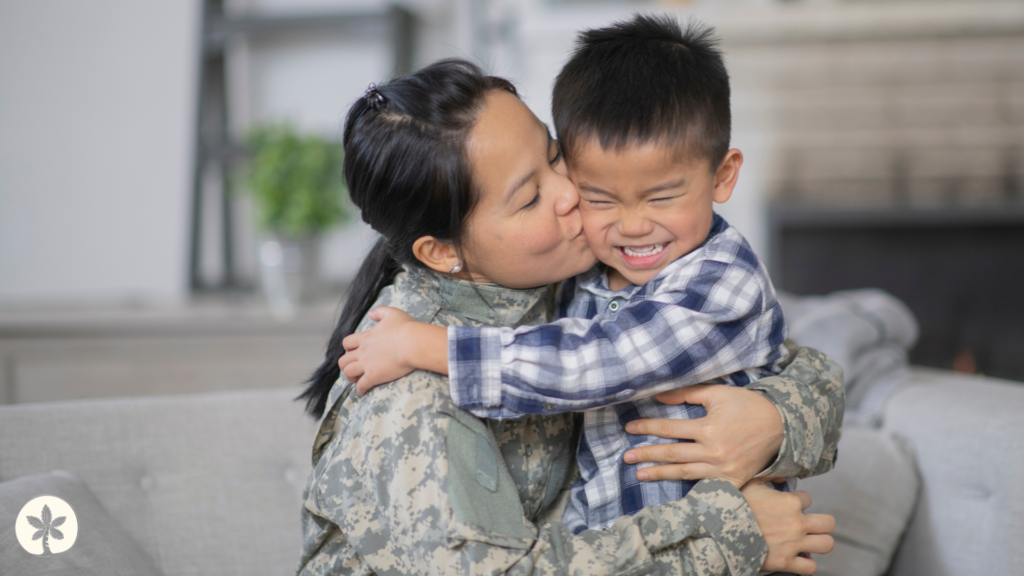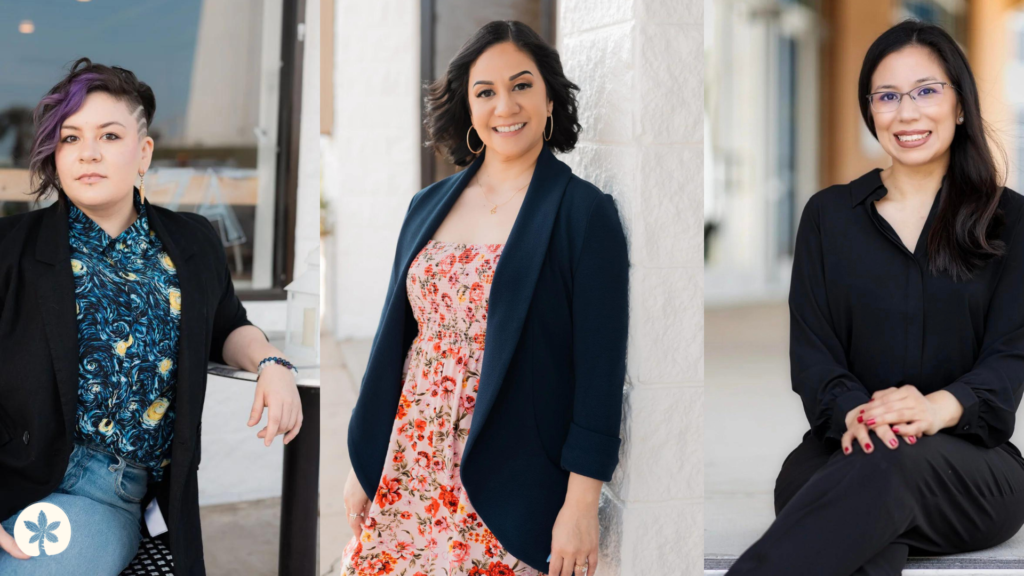
Returning to civilian life after military service is a significant transition, often accompanied by a mix of emotions, challenges, and adjustments. While military training prepares service members to handle high-stress situations, it doesn’t necessarily equip them for the psychological and emotional struggles that can come after. Veterans often face unique challenges, from re-establishing family dynamics to coping with the lingering effects of trauma. Counseling offers a valuable support system, providing veterans with the tools they need to navigate this new chapter.
At Saname Counseling, located in McAllen, Texas, we recognize the distinct needs of veterans and are committed to providing compassionate, specialized counseling for those transitioning back into civilian life. Whether it’s addressing PTSD, coping with anxiety and depression, or simply adjusting to a new environment, our team is here to help veterans and their families find peace and balance.
Understanding the Challenges Veterans Face Post-Service
Life in the military is intense, structured, and filled with a sense of purpose and camaraderie that can be difficult to find outside the service. For many veterans, reintegrating into civilian life comes with unique mental, emotional, and even physical challenges, including:
1. Post-Traumatic Stress Disorder (PTSD)
PTSD is one of the most well-known mental health conditions affecting veterans. Military personnel are often exposed to high-stress and life-threatening situations, which can leave lasting psychological impacts. According to the U.S. Department of Veterans Affairs (VA), about 11-20% of veterans who served in Operations Iraqi Freedom (OIF) and Enduring Freedom (OEF) experience PTSD in a given year. Symptoms of PTSD may include flashbacks, nightmares, hypervigilance, emotional numbness, and difficulty connecting with others.
2. Anxiety and Depression
The transition from a structured military environment to civilian life can feel overwhelming, contributing to anxiety and depression. Many veterans struggle to adapt to the slower pace, different social expectations, and uncertainty that can come with civilian employment. They may experience feelings of isolation, hopelessness, or worry, which can hinder their ability to fully engage with family, friends, and work.
3. Relationship Strain
Relationships with family and loved ones can be affected by prolonged military service, particularly if the veteran has been deployed overseas or in combat zones. Reintegrating into family life and resuming roles that may have shifted during their absence can be challenging, often requiring time, patience, and support. Relationship strain is common, with many veterans and their families seeking counseling to address communication issues, rebuild trust, and navigate new dynamics.
4. Substance Use
Some veterans may turn to alcohol or drugs as a way to cope with trauma, stress, or other mental health challenges. Substance use can create a destructive cycle, leading to strained relationships, difficulty maintaining employment, and exacerbated mental health symptoms. Addressing substance use in counseling can help veterans develop healthier coping mechanisms and build a more stable foundation for recovery.
5. Identity and Purpose
For many veterans, their military identity is deeply ingrained and tied to a sense of purpose and belonging. Upon leaving the service, finding a new sense of purpose and redefining their identity can be a complex and emotionally taxing journey. This loss of identity can impact self-esteem, confidence, and overall mental well-being.
Why Counseling is Essential for Veterans

Counseling provides a safe space where veterans can process their experiences, develop coping strategies, and regain control over their lives. Here are some of the core benefits of counseling for veterans:
1. Addressing Trauma
For veterans dealing with trauma, counseling can be a transformative process. Therapy techniques such as Cognitive Behavioral Therapy (CBT) and Eye Movement Desensitization and Reprocessing (EMDR) are commonly used to help veterans manage and reduce the symptoms of PTSD. Through these therapies, veterans can process traumatic memories, regain a sense of safety, and reduce the intensity of their reactions to triggers.
2. Developing Healthy Coping Mechanisms
In the military, veterans may have relied on adrenaline or hyper-vigilance to stay safe in combat situations. However, these coping mechanisms can be counterproductive in civilian life. Counseling helps veterans identify and develop healthier coping strategies, such as mindfulness, relaxation techniques, and constructive communication skills, which can improve their relationships, reduce anxiety, and enhance overall quality of life.
3. Rebuilding Relationships
For veterans, reconnecting with loved ones can be a complex process. Counseling offers a platform for veterans and their families to work through any challenges, misunderstandings, or emotional barriers that may exist. Family therapy or couples counseling can strengthen communication, build empathy, and restore trust, creating a healthier foundation for relationships.
4. Providing Support and Understanding
One of the most valuable aspects of counseling is simply having a compassionate, non-judgmental professional to talk to. Many veterans feel isolated in their experiences, especially if they’re reluctant to share what they’ve been through. A trained counselor offers understanding, validation, and support, helping veterans feel less alone and more hopeful about the future.
5. Building a New Identity
For veterans, redefining their sense of self and purpose post-service can be a daunting task. Counseling helps veterans explore new goals, passions, and ways to connect with the civilian world while honoring their military experiences. This process of self-discovery can lead to a fulfilling new identity, giving veterans a renewed sense of purpose and direction.
The Role of Family in Veteran Counseling
Family members play an essential role in the reintegration process. They are often the primary support system for veterans, providing stability, love, and understanding. However, supporting a veteran can be challenging, particularly if family members do not fully understand what the veteran has experienced or how best to help.
Family counseling can be incredibly beneficial, not only for veterans but also for their loved ones. Family counseling sessions provide a platform for open dialogue, allowing family members to express their concerns, ask questions, and gain a deeper understanding of the challenges veterans face. This approach fosters empathy, patience, and unity, allowing families to navigate the journey together.
How Saname Counseling Can Support Veterans and Their Families

At Saname Counseling in McAllen, Texas, we offer specialized support tailored to the unique needs of veterans. Here’s how we can help:
1. Individual Counseling for Veterans
Our individual counseling services are designed to help veterans process their experiences and address the specific challenges they face. We use evidence-based therapies such as Cognitive Behavioral Therapy (CBT), EMDR, and mindfulness practices to help veterans manage PTSD symptoms, reduce anxiety and depression, and develop healthy coping mechanisms.
2. Family and Relationship Counseling
We understand that veterans’ experiences don’t just affect them but their families as well. Our family counseling sessions focus on rebuilding and strengthening relationships, promoting open communication, and helping families work through any challenges that arise during the reintegration process.
3. Substance Abuse Counseling
For veterans struggling with substance use, we offer compassionate support and effective treatment plans to address underlying issues and develop healthier coping strategies. Substance abuse counseling can provide veterans with the tools they need to overcome addiction, strengthen relationships, and build a foundation for lasting recovery.
4. Career Counseling and Life Coaching
Our counselors are here to support veterans in navigating their post-military career paths, setting new goals, and building a fulfilling civilian life. By working through identity and purpose-related challenges, veterans can find new ways to contribute, connect, and build confidence in civilian settings.
5. A Safe, Supportive Environment
At Saname Counseling, we prioritize creating a safe, non-judgmental space where veterans feel respected and understood. Our team of experienced counselors has a deep appreciation for the sacrifices made by veterans and the unique challenges they face in returning to civilian life. We’re here to listen, support, and empower veterans as they embark on their next chapter.
What to Expect in Counseling for Veterans
For many veterans, the idea of attending counseling can feel intimidating or unfamiliar. At Saname Counseling, we strive to make the experience as comfortable and accessible as possible. Here’s what you can expect:
- Initial Assessment: During your first session, your counselor will get to know you, discuss your experiences, and explore the areas you’d like to focus on in counseling. This assessment allows us to create a personalized treatment plan that aligns with your needs and goals.
- Therapy Sessions: Your counselor will guide you through various therapeutic techniques, depending on your goals. This may include trauma processing through EMDR, learning mindfulness techniques, or exploring career goals and aspirations.
- Supportive Counseling Environment: Our counselors provide a safe space where you can openly express your thoughts and feelings without judgment. We believe in the importance of empathy, respect, and confidentiality in every session.
- Ongoing Support: Recovery and reintegration take time, and we’re here to support you through every step. Our counselors work with you at your pace, offering the guidance, encouragement, and tools you need to succeed.
Take the First Step Toward a Fulfilling Post-Military Life
Returning to civilian life after military service is a significant journey, but you don’t have to face it alone. At Saname Counseling in McAllen, we are here to support veterans and their families through every stage of reintegration, offering compassionate care and specialized counseling to address the unique challenges that arise after service.
If you or a loved one are a veteran looking for support, contact us today to schedule an appointment and take the first step toward healing, growth, and a fulfilling life beyond the military.
For more information, visit sanametx.com or reach out to us at hello@sanametx.com.

